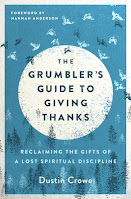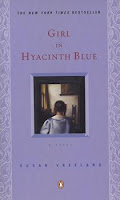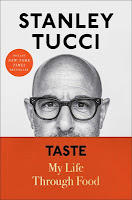Gutenberg's Apprentice by Alix Christie
All I knew about Gutenberg before reading this was that he built the first printing press and then printed the first mechanically produced Bible. I don't recall ever stopping to consider what went into the constructing of the press or the page by page creation of the book, and now I can't understand why I wasn't more curious. It was a massive undertaking with unimaginable (in this day and age) difficulties, delays, and opposition. A fascinating story. Also woefully ignorant of life and culture in the 1400s, I was naively shocked at the level of corruption in the Church, the ruling power at the time. The power hungry leeches making and changing laws to achieve their own ends, the over-taxing of the poor while the rich lived in luxury at their expense, the lying and stealing done in God's name - these were both enlightening and heart-wrenching to read.
The years of labor that went into the building of the press was another surprise to me. When you consider there had never been a metal letter that could be inked and stamped, that no one knew such a thing was possible, you begin to understand what a radical idea it was. Letters had to be hard carved - the whole alphabet many, many times over, and in different fonts. Metals in various combinations were tested until a strength was finally achieved that would survive being pounded onto paper without breaking or smearing the ink, and without tearing the paper or wearing out too soon.
Different inks, made from expensive and often hard to find plants and alcohols, were experimented with. They needed it to be thick enough to stay on the metal form and transfer clearly to the paper, thin enough to not be sticky or gum up the press, and dark enough to stand out against the white of the page and not fade once printed.
All of this took years to accomplish, with much scheming to beg, borrow and steal supplies, not to mention the satisfying of the petty demands of governing powers who all wanted a piece of the action. Then there was what amounted to the paying of "protection" to local guilds and artisans who promised to keep the secret of the new invention, but only for a price.
Once the press was built there were still problems. More money had to be raised, and huge supplies of paper, all handmade and expensive, had to be sourced out and shipped. Security became a constant concern because If the church found out what they were doing, they would simply sweep in and claim the press for their own.
There was surprising (to me) opposition among the people, who upon seeing the first printed material could not understand how such uniform lettering was possible. All they had ever seen was the hand lettering of scribes, who they believed were gifted by God to write out His words and will for the people. It was not possible for human beings to write letters so perfectly aligned and identical, therefore there must be some evil power at work. People of faith were terrified and wanted nothing to do with it.
I was intrigued by the political, religious, and cultural conditions of the time, and all that went into the process of printing. The characters were interesting, if not relatable. Guttenberg in this story was not someone to admire, and though his apprentice, the main character, was more likable, he, too, became tiring after a while. I did appreciate that his personal story of family and a love interest allowed calmer passages to alternate with the very intense, often frantic, story of the press.
This book was total immersion in a time, a place, and a culture. That made it a good read for me. And it was overall a good story, I just think it could have been told as well in fewer pages and with less detailed description.
Bottom line though, fellow readers: it is very much worth reading.













